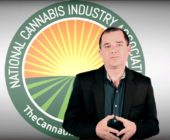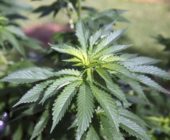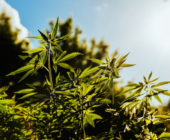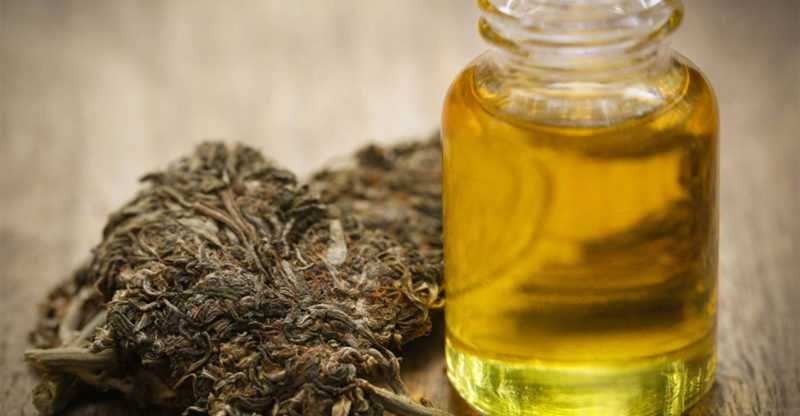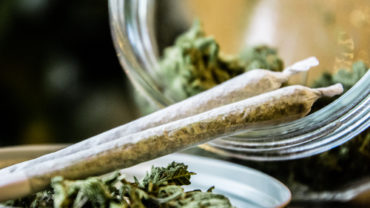“CBD’s illegality should be vociferously challenged. There is enough evidence showing the medical benefits of CBD and ongoing research is needed.”
– Nick Caston of Sonoma County’s CannaCraft
The establishment of a new drug code for CBD extracts has caused near panic in the cannabis industry this week.
On Dec. 14, the U.S. Drug Enforcement Administration filed a final ruling clarifying that CBD extracts — even those with nearly imperceptible amounts of THC — are, in fact, defined as a Schedule I drug and will be tracked with a distinct code. Cannabidiol, known as CBD, is one of more than 100 active cannabinoids in cannabis plants (including hemp), and is non-psychoactive.
The three-page federal ruling, entitled “Establishment of a New Drug Code for Marihuana Extract” is full of complicated legal and scientific language, and is a challenging read, leading to a number of early reports that the DEA was creating a new classification or even “banning” CBDs surreptitiously.
DEA spokesman Russ Baer has said the ruling would simply allow feds to track how scientists are researching CBD versus any other extracts or cannabis product. He explained the ruling to The Cannabist, saying:
“The gist of the issue is that DEA established a new drug code for marihuana extracts as a means to more accurately reflect the activities of scientific research and provide more consistent adherence to the requirements of the Single Convention. We have not changed any control status with this Federal Register Notice. Everything remains schedule I, so no other provisions of the law (registration, security requirements, research protocols, etc.) change. Companies will simple [sic] use a new code for extracts.”
A major cause for the outcry is over CBD’s emerging promise in the medical community in treating cancer, psychosis, depression, nausea, and other chronic illnesses. Parents of children with severe seizures and terminal illnesses have fought for years to gain legal access to CBD oils that they claim significantly improve the quality of life and reduce suffering. However, scientific proof has been hard to come by, since cannabis products remain illegal under federal law, even for medical research.
CBD extracts have long been in a legal limbo, because in pure extract form, they typically contain such small amounts of the psychoactive compound THC. Many hemp, CBD-rich cannabis growers, and extract producers have operated on the assumption that CBD with only trace amounts of THC was technically legal and could move across state lines. The ruling now closes that door, encompassing even CBD with 0% THC, going into effect in January 2017.
Cannabis proponents, however, are still concerned, especially since the agency declined to reschedule marijuana from a Schedule I controlled substance — the most dangerous and addictive drugs (like heroin), with “high potential for abuse” and “no currently accepted medical use” in August.
“Once again, the federal government has shown that it has not caught up with modern science,” said Nate Bradley, executive director of the California Cannabis Industry Association in an interview with Westword. “It’s common knowledge that CBD has numerous medical uses, including curbing the effects of epilepsy and reducing muscle inflammation from injuries. To deny that shows a complete disregard for the facts.”
Local Concerns
The timing seems suspect to Sebastopol cannabis lawyer Omar Figueroa. “(It) is a little coincidental, and makes you raise an eyebrow,” he said of the ruling, which was originally proposed in 2011.
“It seemed like a trial balloon, a test run from the DEA to see how the Trump administration might respond. I think this is going to be in court, and we may see enforcement by the DEA, and it very well could happen in Sonoma County,” Figueroa said.
Santa Rosa’s CBD Guild, one of the largest manufacturers of CBD-extract products, said the ruling won’t affect them, specifically, since their products all contain some amount of THC. But CannaCraft spokesman Nick Caston, of CBD Guild’s parent company, had this to say:
“CBD has technically been Schedule I all along. It’s not a change so much as a clarification. And there’s no legal change/complication for us. CBD is still legal under California’s medical marijuana laws and illegal federally, just as it was last week.
That being said, CannaCraft maintains that CBD’s illegality should be vociferously challenged. There is enough evidence showing the medical benefits of CBD and ongoing research is needed. Because the medical benefits of THC and CBD are most effective when used in conjunction, we strongly support the legalization of all forms of cannabis — industrial hemp, as well as marijuana — and all components of the plant, including CBD and THC. “
“The whole policy around this plant is just so illogical,” said Robert J. Capecchi, director of federal policies at the Marijuana Policy Project, an organization that campaigns for legalization to VICE. “Even when you look at the criteria you’re supposed to be looking at under the law, they’re just not following it. It’s just a stupid policy for lack of a better term.”
What’s your take? Over-reaching by the DEA, or a step toward clearer scientific testing?

